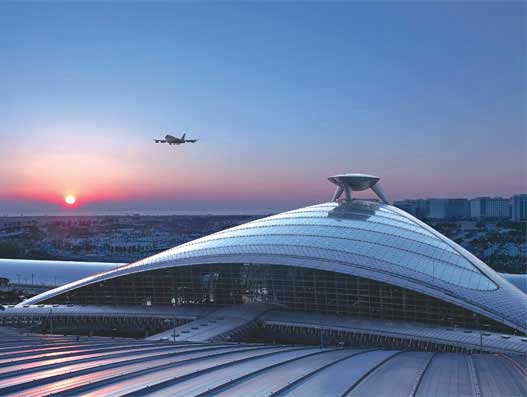
Incheon International Airport Steady growth in cargo volume
South Korea’s most important air facility, Seoul Incheon International Airport is one of the largest and busiest in the world. Since the last decade, it has been consecutively rated as the best airport in the world by the Airports Council International and has received the full five-star ranking by Skytrax, a recognition shared only by […]

South Korea’s most important air facility, Seoul Incheon International Airport is one of the largest and busiest in the world. Since the last decade, it has been consecutively rated as the best airport in the world by the Airports Council International and has received the full five-star ranking by Skytrax, a recognition shared only by Hong Kong International Airport and Singapore Changi Airport.
The main hub for Korean Air, Asiana Airlines and Polar Air Cargo, the airport serves as a hub for international civilian air transportation and cargo traffic in East Asia. It is also currently Asia’s eighth busiest airport in terms of passengers and the world’s fourth busiest airport in terms of cargo and freight.
The airport opened for business in early 2001, replacing the older Gimpo International Airport, which now serves only domestic destinations plus shuttle flights to Tokyo (Haneda), Shanghai (Hongqiao) and Osaka (Kansai). In terms of infrastructure, the airport boasts of a golf course, spa, private sleeping rooms, a casino, indoor gardens and a museum of Korean culture.
In order to maintain an edge over its rivals in Singapore, Hong Kong, Shanghai and Tokyo, Incheon Airport plans to build more runways, passenger and cargo terminals, automated luggage handling systems and other facilities through 2017. The third-phase construction scheme valued at 5 trillion won will boost the capacity of Incheon Airport to handle 62 million passengers annually.
Hong Kong is the largest cargo destination for Incheon. Cargo traffic between Incheon and Hong Kong recorded 249,590 tonnes, comprising 10 percent of total international cargo of the airport (including direct, transfer and mail).
International cargo traffic of Incheon Airport recorded 2.5 million tonnes last year, reflecting a bounce back towards positive growth after three years of slowdown. Incheon Airport processed 19,8000 tonnes of cargo year-on-year (8.2 percent growth) as of January 2014, sustaining growth of Q42013.
Incheon’s cargo volume had been stagnant for the first three quarters last year but the outlook for this year is fairly positive largely thanks to its marketing strategies such as incentives for cargo freighters and aviation logistics businesses conducted together with Ministry of Land, Infrastructure and Transportation. The cargo volume is on a steady growth recording 198,000 tonnes January this year, increased by 8.2 percent year-on-year.
Through the new scheme, cargo freighters and businesses situated in the cargo terminal and logistics complex are exempt from 10 percent of their landing fees, parking fees and rental fees for the time being. In addition, freighters that newly begin their service in Incheon could have extended coverage of the incentive as part of the airport’s efforts to encourage potential demand.
The corporation keeps making the efforts to make its airport be a cargo hub in the region by analyzing the result of the scheme that lasts by the end of August and come up with ways to attract more transit cargo volume.
Meanwhile, the ministry has announced its plan for strengthening international logistics that includes the incentive above to support export-focused businesses and create more cargo volume. Cargo volume in Incheon is expected to increase to 550,000 tonnes by 2017 through 15 projects in four areas such as rearranging marketing strategies and extending cargo related facilities.
Read also: Incheon Airport VP Kwang-Soo Lee joins TIACA board of directors


